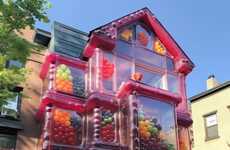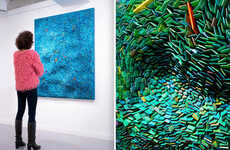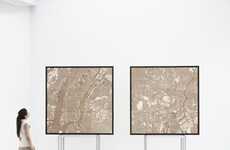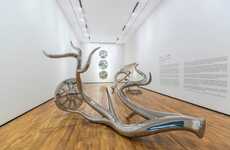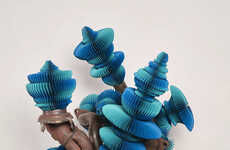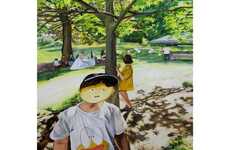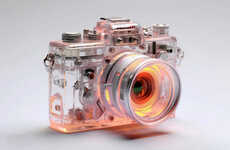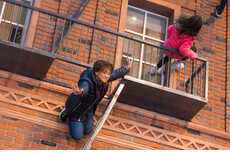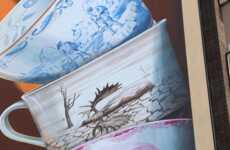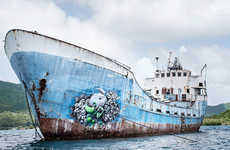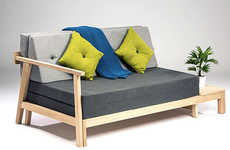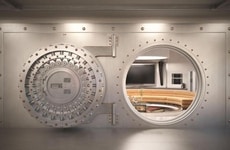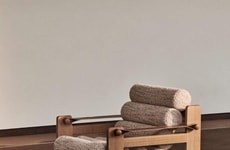
These Highly Detailed Illustrations by Daisuke Tajima Were All Imaginary
Christopher Magsambol — November 5, 2015 — Art & Design
References: juxtapoz & beautifuldecay
Daisuke Tajima has created paintings of extremely detailed and intricate cities. Each is positioned from a bird's eye view, as if you were flying over the city. Although these images look realistic, they are in fact entirely fictional skylines imagined by Tajima.
Tajima's goal is for viewers to get lost in his art. The detail in each building, rooftop and facade gives the impression that he has recreated something that exists in the world. Tajima is able to incorporate interesting images of pipes and machineries that many artists would most likely neglect. The repetitive technique used throughout each piece creates a sense of claustrophobia, ultimately creating an uncomfortably busy feeling. Tajima however creates his little worlds as a place to escape, feel comfortable and controlled.
Tajima's goal is for viewers to get lost in his art. The detail in each building, rooftop and facade gives the impression that he has recreated something that exists in the world. Tajima is able to incorporate interesting images of pipes and machineries that many artists would most likely neglect. The repetitive technique used throughout each piece creates a sense of claustrophobia, ultimately creating an uncomfortably busy feeling. Tajima however creates his little worlds as a place to escape, feel comfortable and controlled.
Trend Themes
1. Fictional Cityscapes - Opportunity to create immersive experiences in virtual reality or augmented reality, allowing users to explore and interact with imaginary urban landscapes.
2. Hyper-realistic Art - Opportunity to develop new techniques and tools for creating highly detailed and realistic artwork, blurring the line between reality and fantasy.
3. Escapism Art - Opportunity to market art as a way to escape reality and create a sense of comfort and control for consumers in a busy world.
Industry Implications
1. Art and Design - Fictional cities art can be applied to different fields of design such as urban planning, architecture, gaming, advertising.
2. Virtual Reality and Augmented Reality - Hyper-realistic fictional cities can be turned into virtual-reality and augmented-reality experiences, used for gaming, educational purposes, or architectural design.
3. Entertainment - Hyper-realistic and fictional cityscapes can be used in the entertainment industry for creating immersive experiences in movies or video games.
4.6
Score
Popularity
Activity
Freshness

